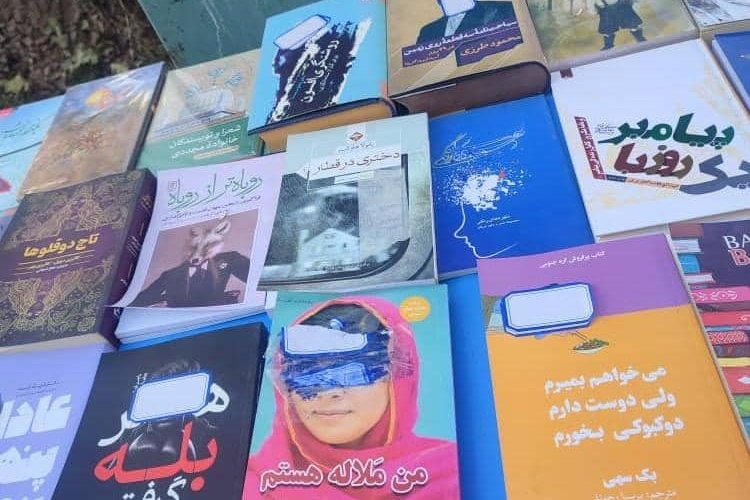Street book exhibition in Herat and Taliban’s censorship of book covers
1. Street Book Fair and Taliban Censorship of Cover Images
In recent days, a five-day street book exhibition was held in the Amirate area of Herat. However, the cultural event faced restrictions imposed by the Taliban, who ordered booksellers to cover images on book covers. The censorship of images, particularly those depicting living beings, has been previously enforced by the Taliban in Herat and several other provinces.
According to some booksellers, they were instructed to obscure human faces, especially those of women, on book covers. As a result, many books across different genres were displayed with stickers and colored paper covering their original designs.
Despite these restrictions, the exhibition provided an opportunity for book enthusiasts to access a variety of literary works. Many young men and women attended the event, showing strong support for the initiative.
One young woman at the exhibition expressed her concerns, saying, “A book cover is not just an image; it is part of its identity and message. The fact that the Taliban even have an issue with book covers shows their extreme sensitivity toward any form of artistic and intellectual expression.”
A local writer also criticized the censorship, stating, “Covering book images carries a certain symbolism, but it cannot diminish the meaning and impact of books. This act will not prevent understanding, but it is a clear sign of the Taliban’s ignorance and hostility toward knowledge. The essence of a book lies in its words and content.”
Since returning to power, the Taliban have imposed severe restrictions on cultural and artistic activities, including book exhibitions. They have previously banned several books, labeling them as "forbidden literature," and have prohibited their sale and circulation.
Despite these limitations, book lovers and cultural advocates continue to resist suppression, viewing such exhibitions as a means of preserving intellectual and literary spaces in Afghanistan. Many see these efforts as a way to counteract the Taliban’s crackdown on free thought.

